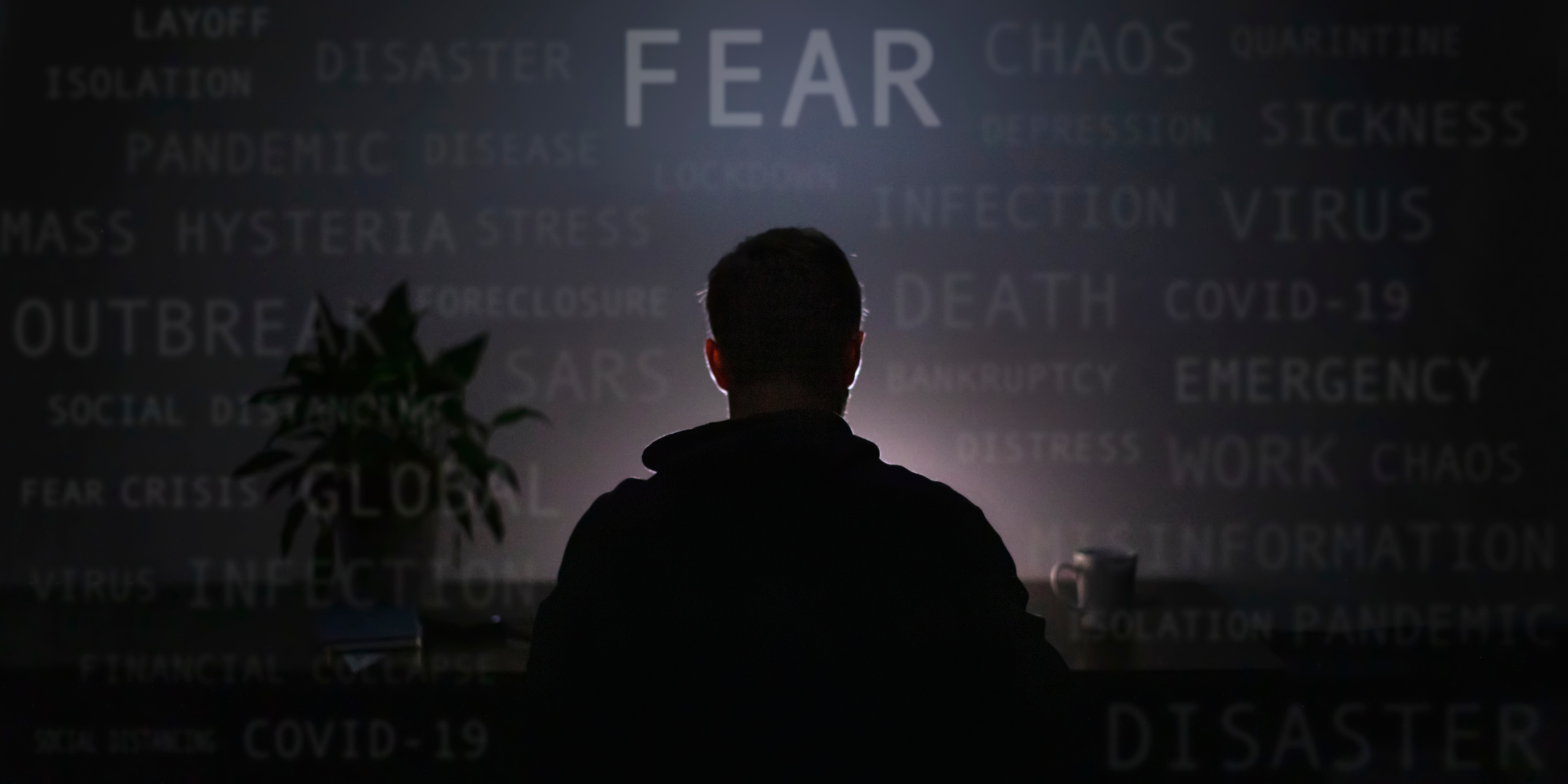Have you ever worked with an employee that struggles with crippling self-doubt and fear when you ask them to do something new? I have, and I’m not going to lie it frustrates the hell out of me. Particularly when the employee is saying they are wanting to grow and learn new things, or stretch beyond their role but whenever you ask them to do it, they freak out.
Fear of the unknown is a really common trigger for many people, so how do we help people push boundaries and learn to be more resilient? It’s a common problem in workplaces today and many leaders struggle to help young people “learn on the fly”or push outside their comfort zones.
To give you an example of how I dealt with this very problem with my son I want to tell you a story from back in 2021. At the time I was home-schooling my 7-year-old son, as we were in lockdown at the beginning of the COVID-19 pandemic.
At my son’s school every Friday was FUN FRIDAY, the day would end with children from his class volunteering to participate in a concert for all the parents as we picked them up. Children could play an instrument, sing a song or even do a dance.
My son had never put his hand up to participate, even though he loved dancing and also singing. He is pretty extraverted, so I kept pushing him asking why he didn’t want to be in the concert? Because of the lockdown the next week they were planning on doing a virtual fun Friday and they were asking for volunteers. I asked him again whether he wanted to participate and he vehemently said “No way I will get really nervous!”. He actually started going really red even thinking about it…
“Why is that, I asked? You would be doing your performance at home wouldn’t that be a little less scary?”
His response was that he would still get really nervous as he didn’t like everyone looking at him. We then had a really interesting conversation, as I know that nerves and excitement are two ways of looking at that feeling of fear or nervousness. And successful athletes and performers have learnt to interpret nervousness as a positive form of energy and frame it as excitement. Your mind is a powerful weapon so if you think about it, nerves and excitement have pretty much the same physical reaction in your body. Whether you are nervous or excited:
- Your heart starts racing
- Your palms get clammy
- Your mind races and you start visualising the future and what is going to happen
- You may even need to go to the toilet (1’s or 2’s) 😊
So, I started thinking about how could I prepare my son and help him reframe his nervousness as excitement and get the courage to face his fear and stand up in front of his peers. I started talking to him about our family motto which is “The Jaksch’s never give up.” This is how I get him to push forward when he wants to give up or not try something.
It didn’t work, he actually started getting really upset, so I knew this fear was actually a pretty deep-seeded one. And I struggled to understand it, being a speaker, I loved getting up in front of people. I also know that the best way of getting over a fear is to face it. This is what creates resilience.
I then tried using the analogy of skiing. Our family are avid skiers and my son learned when he was just two years old so at seven, he was actually pretty good. In fact, he had just started skiing black runs. But this involves my husband pushing him and taking him places that are outside his usual comfort zone. These little expeditions often ended in tears but then quickly turned to elation as he conquers his fear and gets down the hill. My husband at the end of each of these difficult runs, would ask my son to look back up the hill and look at where he has just skied down. The response was always the same, my sons face would break out into a massive smile. “WOW!” He would exclaim. “I cannot believe I just did that, let’s do it again!”.
Using this analogy, I asked him to remember the feeling he gets when he is about to ski down a black run. I asked him what is that feeling? He says it’s really scary I feel afraid in my tummy. I then ask him what he thinks is going on his body? He says his heart is jumping up and down! (Cute explanation hey!). During this conversation, he starts smiling as he remembers how he turned his fear into another feeling.
I decided to press on and I then asked him what is going on when he thinks about getting up in front of people? He instantly gets really agitated. “Oh, mummy I just don’t want to talk about this, OK!”. There is obviously something there.
I asked him, can you remember a specific time when you had to get up in front of people? When you maybe felt nervous? He looks up and says yes “Mummy, I have this dream all the time that I am on stage in a big theatre and I wet my pants, and everyone laughs at me.”
I find it amazing that a seven-year old’s fear of social rejection manifests in a dream and then he brings it into a real-life fear of being publicly humiliated. But our unconscious mind does not know the difference between reality and a dream so there we have it. So I press on.
“Is it ok if I ask you another question?” I ask.
“Ummmm, ok,” he says nervously.
“So, can you remember a time recently when you wet your pants in public?” I ask.
He thinks for a moment and starts smiling “No, no I can’t I don’t wet my pants anymore. That’s what babies do.” He answers.
“So do you really think you would wet your pants if you had to get up and do a dance in front of your friends?”
“No Mummy I wouldn’t but I still don’t want to do it. I’m still nervous.”
Knowing what I do about brain science, I decide to try and get him to reframe this experience and create a new stimulus for him to draw on in an attempt for him to conquer this fear.
“Is it ok if we try something out I ask?”
I asked him to close his eyes and get a picture of him standing up in front of a group of people. He reluctantly agrees. “What is the feeling that you get?” He says “I am nervous my heart is jumping and I feel weird in my tummy.”
“Now imagine that instead of speaking you are about to ski down the mountain and at the bottom is the same group of people are watching you”. He said “ok”. I said, “How do you feel?”
“I feel scared mummy. My heart is still jumping and I feel it in my tummy.”
“Don’t you notice how similar these feelings are… I asked?” I repeated what I heard that whether he was talking in front of people or skiing down a difficult pitch he has the same feelings in the same places within his body.
He paused and said, “Yes Mummy I suppose they are.”
“Now I want you to imagine yourself skiing down the mountain and when you get down the bottom imagine all the people are clapping? Can you see it and feel it?”
His face breaks out into a massive smile and he exclaims “I did it, I did it!”…
“How does it feel?” I ask.
“I don’t know mummy he says, can I open my eyes now?”
“Just a few more moments.” I press.
“So, what did you notice?” I ask?
“Mmmm…” he ponders… “That being scared is ok as the feeling doesn’t last forever and when you try something new sometimes you can do things, you didn’t think you could…” he says.
“B I N G O!” I exclaim… “By using the special powers in our mind, we can choose how to feel about any situation we are faced with. No matter how young or old we are.” I explain.
This is one thing I see alot working with younger generations. Many do not have grit or resilience. They are terrorfoed of failing or making a mistake and as Leaders we need to give them the skills to be able to face fears, push boundaries and try new things. The thing I have learned about resilience is, this is not something we are born with it is something that we need develop. Like an athlete, we need to train ourselves to embrace that feeling of discomfort, feel the fear and nerves and then enjoy the end result of pushing through.
I truly believe that we never too old to start trying new things, as and leaders I am actively teaching my son to be brave and push himself as this is what is going to serve him well later in life and hopefully create pathways for the type of thinking he will need to draw on.
My son never performed at Fun Friday. And that’s ok. We also need to respect that sometimes people will only do things when they are good and ready. But how to we encourage our people to forge new territory where they don’t feel safe or equipped? Well the first thing is to try and have a conversation about how to they could try to reframe their fear to excitement and see what happens. You could even get them to say the words “Well this is exciting.”
We also need to start providing a safe place for learning, and also failure in our workplaces. We need to let people feel safe in the knowledge that if they have a crack then we have their backs! Through effective coaching conversations we can give our people the confidence to be outside of their comfort zones and reap the benefits of doing so.
I am positive that your people will notice a difference in your approach and in times like these, we need to be using our fear as a positive form of energy and using it to help us grow. It’s a choice.
Written by Emily Jaksch
Continue Reading
Get a personal consultation.
Call us today at 1300 959 560.
Here in HR Gurus. We make HR simple because it should be.




